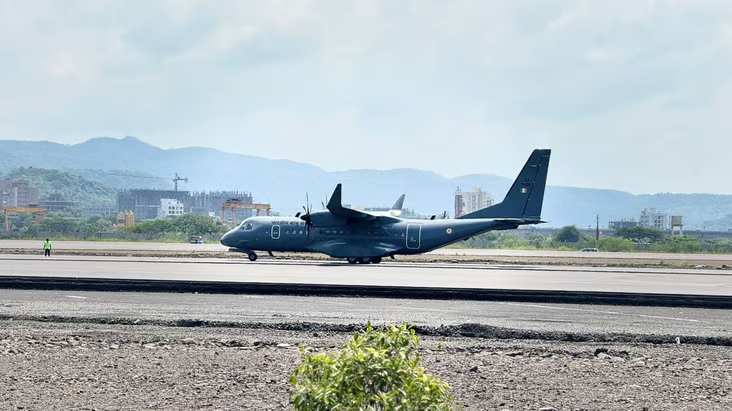The Chhatrapati Shivaji Maharaj International Airport in Mumbai is only one example of how data science is still essential in 2024 for improving the operational effectiveness of huge facilities. Being one of the busiest airports in India, handling millions of travelers and tons of cargo annually, means that maintaining high standards of efficiency, safety, and customer satisfaction requires streamlining its operations.. Data science provides the necessary tools to manage and analyze vast amounts of data generated daily at the airport, transforming it into actionable insights that streamline operations.
From improving flight scheduling and passenger flow management to optimizing cargo handling and security, data science is revolutionizing how Mumbai’s airport operates. For professionals looking to build a career in this exciting field, enrolling in a data science course in Mumbai offers invaluable training to understand and apply these transformative technologies.
The Importance of Data Science in Airport Operations
Mumbai’s international airport is a bustling hub, managing flights from around the globe, processing thousands of passengers every hour, and coordinating complex logistical operations. Managing such a massive infrastructure efficiently requires the ability to process and analyze extensive datasets, ranging from passenger information and flight schedules to weather conditions and cargo logistics.
Data science helps airport management teams make data-driven decisions, optimizing processes that ensure smooth operations while minimizing delays and inefficiencies. Through predictive analytics, machine learning models, and real-time data analysis, airports can better anticipate disruptions, allocate resources effectively, and enhance the overall passenger experience.
Enrolling in a data science course provides the fundamental skills required to work with big data, create predictive models, and use machine learning techniques that have an immediate influence on airport operations for individuals who want to work in this field. A data science course in Mumbai also provides exposure to the specific challenges faced by one of the world’s busiest airports, giving students a unique opportunity to apply their learning to real-world scenarios.
Optimizing Flight Scheduling with Predictive Analytics
One of the key areas where data science is making a significant impact at Mumbai’s international airport is in flight scheduling. Flight delays and cancellations can cause a ripple effect, disrupting operations across the entire airport. Predictive analytics helps airport authorities anticipate delays by analyzing real-time data such as weather conditions, air traffic, and aircraft maintenance schedules.
By using machine learning models, the airport can predict potential delays and reschedule flights accordingly, minimizing disruptions and ensuring smoother operations. For example, data science models can analyze weather patterns to predict whether a thunderstorm is likely to cause flight delays, allowing the airport to proactively adjust schedules and inform passengers in advance.
Professionals may create these prediction models by taking a data science course, which teaches them how to deal with large datasets and create disruption-forecasting algorithms. For those interested in applying their knowledge in aviation, a data science course in Mumbai offers the chance to work on real-life case studies involving airport operations, enabling them to create solutions tailored to the unique challenges faced by Mumbai’s airport.
Improving Passenger Flow Management
Managing passenger flow efficiently is a critical task for any large airport, and Mumbai’s international airport is no exception. A seamless check-in, security, and boarding process is crucial for a satisfying travel experience, since millions of passengers pass through its terminals each year.
The airport in Mumbai is managing passenger flow better thanks in large part to data science. Airport managers can forecast when and where traffic jams are likely to happen by examining data on peak travel periods, passenger demographics, and flight schedules. This enables them to deploy resources more efficiently, e.g., by adding more security personnel during busy hours or setting up more check-in counters to cut down on wait times.
Furthermore, data science models can help optimize the layout of terminals, ensuring that high-traffic areas are designed to minimize bottlenecks. Machine learning algorithms can also analyze real-time data from security checkpoints, immigration, and boarding gates, enabling airport staff to make real-time adjustments that improve passenger flow.
For students enrolled in a data science course in Mumbai, passenger flow optimization presents a valuable opportunity to apply their skills. Through coursework focused on machine learning and predictive analytics, students can develop algorithms that improve efficiency in high-traffic environments such as airports.
Enhancing Cargo Operations with Data Science
Cargo operations are a vital part of any international airport’s logistics network, and Mumbai’s airport is no different. With thousands of tons of cargo passing through its terminals each day, optimizing cargo handling operations is crucial to ensuring timely deliveries and reducing operational costs.
Data science is being used to enhance cargo operations by predicting demand, optimizing storage allocation, and reducing bottlenecks in the supply chain. Predictive models analyze historical cargo data, identifying trends that help airport management anticipate surges in cargo traffic and allocate resources accordingly. Machine learning algorithms can also optimize the routing of cargo within the airport, ensuring that shipments move through customs, security, and loading areas as efficiently as possible.
By implementing data science solutions, Mumbai’s airport has been able to reduce turnaround times for cargo shipments, improve coordination between different teams, and minimize delays caused by congestion in cargo terminals.
Professionals who have completed a data scientist course can play a pivotal role in optimizing cargo operations. These courses teach students how to work with large datasets, build predictive models, and develop algorithms that streamline logistics operations, preparing them to contribute to the airport’s ongoing efforts to improve efficiency.
Security and Safety Enhancements Through Data Science
At every airport, ensuring the safety and security of visitors, employees, and cargo is of utmost importance. At Mumbai’s international airport, data science is significantly contributing to the improvement of security protocols. By analyzing real-time data from surveillance cameras, security checkpoints, and passenger records, data science models can detect unusual behavior patterns and flag potential security threats.
Machine learning algorithms, for instance, are able to quickly respond to possible incidents by analyzing CCTV camera video data to detect suspicious activities. Additionally, data science can be used to enhance biometric security systems, allowing for faster and more secure passenger identification at immigration and boarding gates.
Additionally essential to guaranteeing the security of airport operations is data science. Predictive models analyze maintenance data from aircraft and airport equipment, helping to identify potential issues before they cause operational disruptions. This proactive approach to safety management minimizes the risk of accidents and ensures that both passengers and airport staff remain safe.
A data science course provides students with the necessary skills to develop and implement security solutions in a high-stakes environment such as an airport. With a data science course in Mumbai, students gain practical knowledge of how data science is applied to ensure the safety and security of one of the busiest airports in the world.
Why a Data Science Course in Mumbai is Essential for Aspiring Professionals
As data science continues to transform industries across the globe, including aviation, professionals with expertise in this field are in high demand. Mumbai’s international airport, with its complex operations and vast datasets, offers a unique opportunity for data scientists to make a real impact.
Enrolling in a Mumbai data science school equips future professionals with the abilities and know-how required to succeed in this fast-paced industry. These courses cover the core areas of data science, including machine learning, predictive analytics, and big data, equipping students with the tools to analyze and interpret data effectively. In addition to providing students with actual, hands-on experience, a data science course enables them to apply what they learn to real-world issues and create solutions that improve airport operations in Mumbai.
Conclusion: The Future of Airport Operations Powered by Data Science
In 2024, data science is playing a crucial role in optimizing the operations of Mumbai’s international airport, improving everything from flight scheduling and passenger flow management to cargo handling and security. By leveraging the power of data, the airport can operate more efficiently, enhance the passenger experience, and ensure the safety of all its stakeholders.
Enrolling in a data scientist course or a data science course in Mumbai is the first step toward developing a successful career in this fascinating subject for people hoping to contribute to this current shift. By mastering the skills needed to work with large datasets and build predictive models, data scientists can help shape the future of airport operations in Mumbai and beyond.
Business Name: ExcelR- Data Science, Data Analytics, Business Analyst Course Training Mumbai
Address: Unit no. 302, 03rd Floor, Ashok Premises, Old Nagardas Rd, Nicolas Wadi Rd, Mogra Village, Gundavali Gaothan, Andheri E, Mumbai, Maharashtra 400069, Phone: 09108238354, Email: enquiry@excelr.com.







